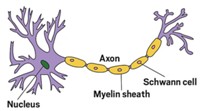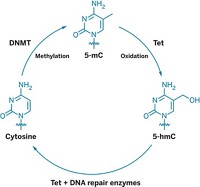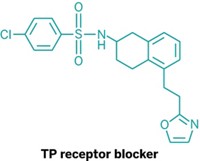Advertisement
Grab your lab coat. Let's get started
Welcome!
Welcome!
Create an account below to get 6 C&EN articles per month, receive newsletters and more - all free.
It seems this is your first time logging in online. Please enter the following information to continue.
As an ACS member you automatically get access to this site. All we need is few more details to create your reading experience.
Not you? Sign in with a different account.
Not you? Sign in with a different account.
ERROR 1
ERROR 1
ERROR 2
ERROR 2
ERROR 2
ERROR 2
ERROR 2
Password and Confirm password must match.
If you have an ACS member number, please enter it here so we can link this account to your membership. (optional)
ERROR 2
ACS values your privacy. By submitting your information, you are gaining access to C&EN and subscribing to our weekly newsletter. We use the information you provide to make your reading experience better, and we will never sell your data to third party members.
Biological Chemistry
Protein-Dependent Memory Modification
February 11, 2008
| A version of this story appeared in
Volume 86, Issue 6
Protein synthesis in neurons in the brain is critical for stabilizing a recalled memory and storing it away again. On the other hand, protein degradation is required to modify a recalled memory based on new experiences, according to a study by Bong-Kiun Kaang and colleagues at Seoul National University, in South Korea (Science, DOI: 10.1126/science.1150541). The researchers worked with mice trained to fear a particular location in the lab. Returning the mice to that spot triggered a recall of their fear-associated memories, which began a process that degrades certain synaptic proteins in neurons. This process allowed the mice to begin modifying their memories and overcome their fear, as long as they didn't encounter any further unpleasant experiences in that part of the lab. The researchers confirmed the results by blocking degradation of the synaptic proteins, which prevented the mice from modifying their fear-associated memories.





Join the conversation
Contact the reporter
Submit a Letter to the Editor for publication
Engage with us on Twitter